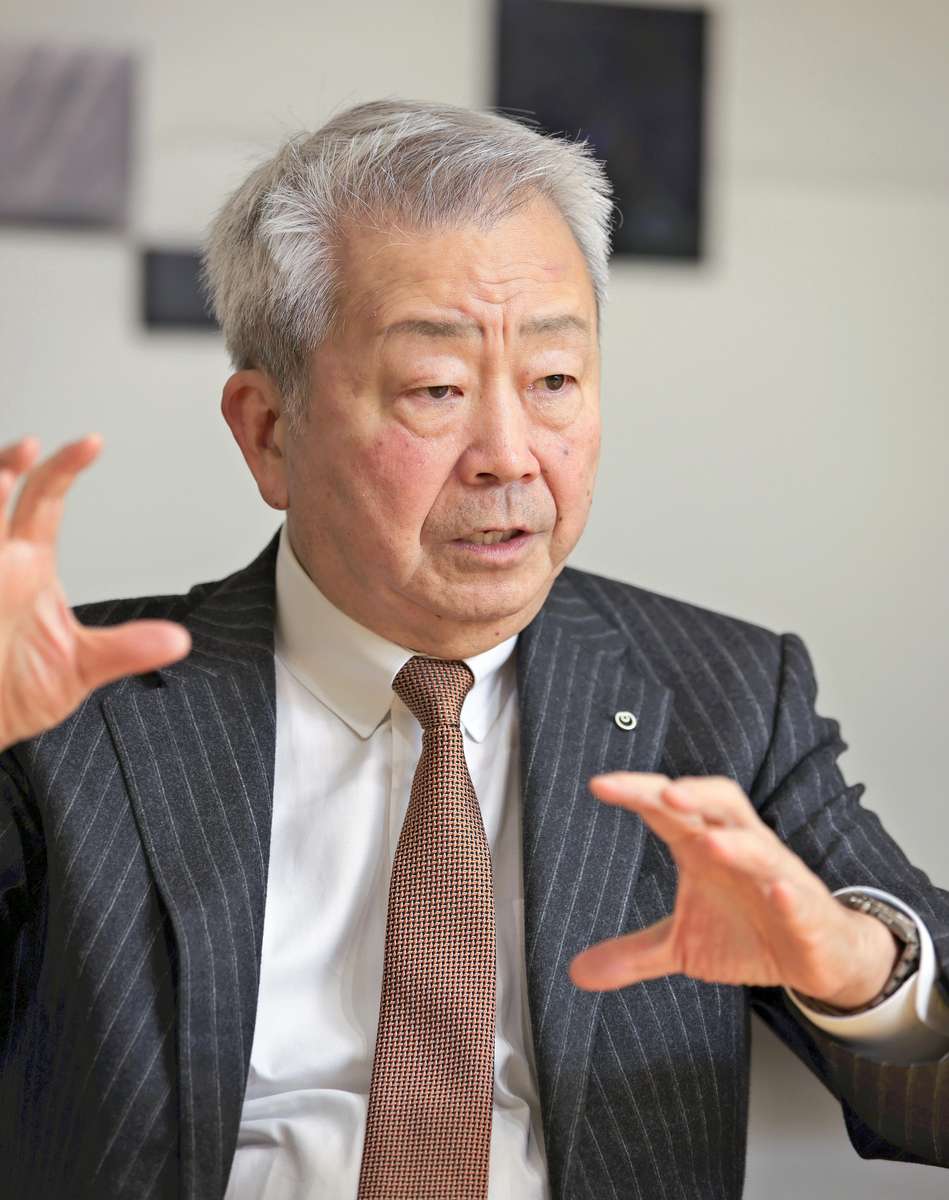Trump Aims to ‘Shock and Awe’ with Tariff Policy; Japanese Business Leader Examines U.S. Moves

Jun Sawada
6:00 JST, April 24, 2025
Jun Sawada, chairman of the Japan-U.S. Business Council, said during an interview with The Yomiuri Shimbun that U.S. President Donald Trump’s tariff policy is a bargaining chip for achieving his goals, shocking other countries and forcing them into negotiations in the manner of a “shock and awe” military campaign.
The following is excerpted from an interview with Sawada conducted by Yomiuri Shimbun Staff Writer Kisaki Ozawa.
In textbook terms, the tariff policy of the administration of U.S. President Donald Trump should be impossible. It’s a common perception that such policies will cause inflation in the United States and make its economy stagnate. But Trump’s goal is revitalization of the U.S. economy and the country’s reindustrialization. To this end, I guess measures such as tariffs might work if he reduces taxes domestically and cuts energy costs by producing fossil fuels and promoting administrative efficiency at the same time.
The global economy continues to be unstable and uncertain. Like the military tactic called “shock and awe,” Trump’s measures shocked other countries with tariffs and then suddenly suspended “reciprocal tariffs” for three months. While other countries feel relief, he will realize his purposes through negotiations. Various things, not only tariffs, can be bargaining chips for the United States. It is possible that exchange rates and national security will be on the table in negotiations with Japan.
I’m sure Japan can minimize the damage if the country makes it its basic stance to stand by the United States as an ally.
It may be true that Trump thinks it’s unfair that Japan relies on the United States for its national security and has a trade surplus of ¥10 trillion. However, Japan has an about ¥6 trillion trade deficit against the United States in the digital field, as the tech giants are based in that country.
The yen was strengthened against the U.S. dollar in the Plaza Accord in 1985 (when Japan, the United States and three European countries decided to correct the dollar’s appreciation). After the collapse of the bubble economy, Japan has had a deflationary economic structure. The United States has a history of attacking the No. 2 country.
Now its target is China. As China’s influence is larger than that of Japan in the past, [the U.S. attack on China] will have negative impact on the global economy. The United States, seeking to decouple from China, will likely ask for Japan’s cooperation for that purpose, which will increase risks for Japan in terms of both security and economy.
Trump thinks that other countries have prospered because the United States carries the burden of maintaining security and issuing the global reserve currency, and that the United States alone has been left in a terrible situation. The tariff policy is an action to make other countries bear the burden and change the world order. It’s irreversible. There will be no return to free competition or free trade.
However, Japan, which has few natural resources, needs free trade. Japan should understand the United States’ “America First” policy and call for a hybrid model of promoting free trade and “America First” at the same time.
If Japan and the European Union team up against the United States, the world will end up with a bloc economy. We should avoid returning to the situation before World War II. We need a structure that does not isolate the United States.
It’s important to bring the United States into the picture, not only of the Trans-Pacific Partnership agreement, but by seeking partnership principles that expand the Quad, a cooperative framework of Japan, the United States, Australia and India, as a “minilateral” framework for a small number of countries, including the United States.

Jun Sawada
Jun Sawada, 69, was born in Osaka and graduated from Kyoto University Engineering Faculty in 1978. He joined Nippon Telegraph and Telephone Public Corporation, now NTT Corp., and became its president in 2018, leading the company’s overseas business restructuring and making NTT Docomo Inc. a wholly owned subsidiary. He has served as chairman of NTT since June 2022 and chairman of the Japan-U.S. Business Council since 2021. He is also a vice chair of Keidanren (Japan Business Federation).
Top Articles in Business
-

Prudential Life Insurance Plans to Fully Compensate for Damages Caused by Fraudulent Actions Without Waiting for Third-Party Committee Review
-

Narita Airport, Startup in Japan Demonstrate Machine to Compress Clothes for Tourists to Prevent People from Abandoning Suitcases
-

Japan, U.S. Name 3 Inaugural Investment Projects; Reached Agreement After Considerable Difficulty
-

JR Tokai, Shizuoka Pref. Agree on Water Resources for Maglev Train Construction
-

Toyota Motor Group Firm to Sell Clean Energy Greenhouses for Strawberries
JN ACCESS RANKING
-

Japan PM Takaichi’s Cabinet Resigns en Masse
-

Japan Institute to Use Domestic Commercial Optical Lattice Clock to Set Japan Standard Time
-

Israeli Ambassador to Japan Speaks about Japan’s Role in the Reconstruction of Gaza
-

Man Infected with Measles Reportedly Dined at Restaurant in Tokyo Station
-

Videos Plagiarized, Reposted with False Subtitles Claiming ‘Ryukyu Belongs to China’; Anti-China False Information Also Posted in Japan




















